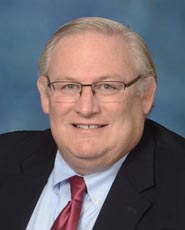Stephen G. Reich, MD

Stephen G. Reich, MD
Graduated: 1987
Current Position: The Frederick Henry Prince Distinguished Professor in Neurology, Co-Director Maryland Parkinson's Disease and Movement Disorders Center, University of Maryland School of Medicine.
Research Interests: experimental therapeutics of movement disorders; phenomenology and natural history of movement disorders; progressive supranuclear palsy
"What was most important to me when searching for a residency, as a senior medical student in 1982, was finding a mentor. It was quickly apparent during my interview day at CWRU that Dr. Daroff was it. During my internship at Mt. Sinai (Drs. Michael Devereaux and Krishan Chandar were the neurologists there at that time), I began to appreciate that the success of the training program was that Dr. Daroff was surrounded by other outstanding faculty who also became important mentors and role models. There was, and continues to be, a great spirit of scholarship and inquiry throughout CWRU that stimulated me to pursue an academic career. It was under the mentorship of Dr. Robert Ruff that I published my first paper as a resident. It was largely through my experiences at the VA clinic that I became interested in movement disorders. I was (and remain even more so) fascinated by the phenomenology. Furthermore, some of the most rewarding long-term patient relationships I had as a resident were with people with Parkinson's disease and their families. Dr. Daroff nurtured this interest and helped me arrange an elective with Dr. David Marsden in London during the second year of my residency, another key influence on my specialty choice. One could not graduate from the program then without becoming interested in eye movements and I was cast under the spell by not just Dr. Daroff but also Dr. John Leigh. Even though I specialize in movement disorders, a number of my presentations and publications have been on ocular motor findings in Parkinson's disease and PSP and I am an amateur "dizzy doctor". I have always considered myself a clinician first; I started my residency largely "undifferentiated" but the positive academic experiences and role models I had as a resident at CWRU influenced me to stay in academic neurology and combine clinical care with clinical research and I remain grateful for their mentoring, continued support and friendship."


